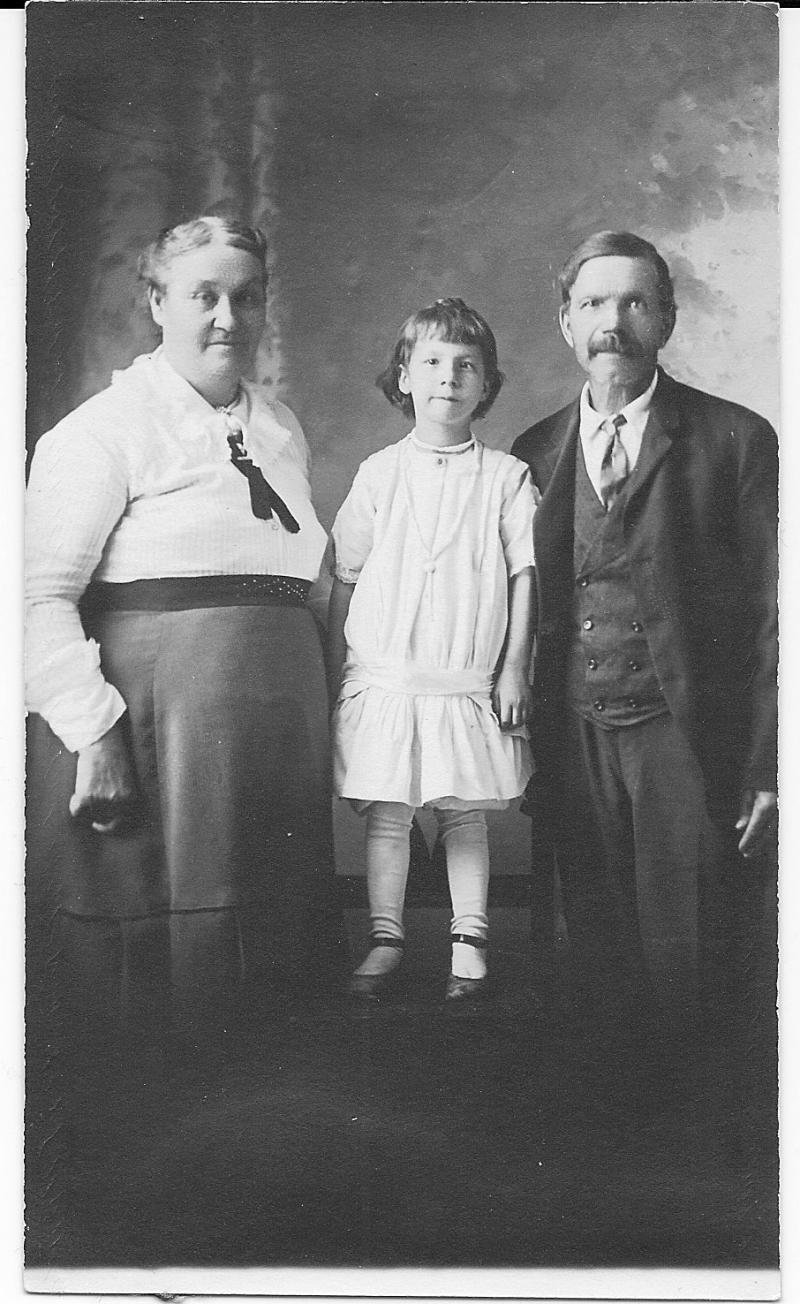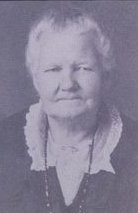The Pioneer Heritage of Faith and Sacrifice
Gordon B Hinckley
What does it mean to be a pioneer?
What characteristics made these men pioneers ?
When President Hinckley’s great-grandfather died, his son Ira, who would become President Hinckley’s grandfather, was not quite three years old. Ira’s mother soon remarried and within a few years moved to Ohio, then to Illinois. She died in 1842, leaving Ira an orphan at age 13. Continuing this story, President Hinckley said:
"My grandfather [Ira Hinckley] was baptized in Nauvoo and … subsequently crossed the plains in the migration of [the pioneers]." During that journey in 1850, Ira’s "young wife and his [half brother] both died on the same day. He made rough coffins and buried them and picked up his infant child and carried her to [the Salt Lake] valley.
"At the request of Brigham Young he built Cove Fort, was the first president of the stake in Fillmore, [Utah,] and did a thousand other things to move this work forward.
"Then came my father. … He became president of the largest stake in the Church with more than 15,000 members."
What inheritance will we pass on?
"Reflecting on the lives of these three men while I was seated in the temple, I looked down at my daughter, at her daughter, who is my grandchild, and at her children, my great-grandchildren. I suddenly realized that I stood right in the middle of these seven generations—three before me and three after me.
"In that sacred and hallowed house there passed through my mind a sense of the tremendous obligation that was mine to pass on all that I had received as an inheritance from my forebears to the generations who have now come after me."
Who you look to as pioneer forbears? Why?
Mary Catmull and Thomas Chandler

- Married 1873
- He was 22, she was 16
- 20 children
- 10 died as children
- Thomas was a blacksmith for the Union Pacific
Anna Christina Petersen

At eighteen months of age, while crossing the plains in a handcart with a company of Latter-Day Saint immigrants, she became ill with cholera and died. Hostile Indians prevented taking time to dig a grave. As instructed, she was left behind, wrapped in a blanket beneath a prairie bush. While others slept during the darkness of the following night, her beloved mother, Maren Peterson, beside herself with consternation, walked a day's journey back to get Anna Christina. Large prairie wolves had not harmed the baby - and she was found alive! Continued blessings saw her safely to her journey's end.
Esther Brems


You can get old smart, or you can get old stupid. Either way you are still going to get old.
What challenges do you face?
How do we bring our faith to reality?
All of the great accomplishments of which I have spoken were once only “the substance of things hoped for, the evidence of things not seen.” But with vision, with labor, and with confidence in the power of God working through them, they brought their faith to reality.
The power that moved our gospel forebears was the power of faith in God. It was the same power which made possible the exodus from Egypt, the passage through the Red Sea, the long journey through the wilderness, and the establishment of Israel in the Promised Land.
We need so very, very much a strong burning of that faith in the living God and in his living, resurrected Son, for this was the great, moving faith of our gospel forebears.
What are your doubts?
I stood the other day on the old docks of Liverpool, England. There was practically no activity the Friday morning when we were there. But once this was a veritable beehive. During the 1800s, tens of thousands of our people walked over the same stone paving on which we walked. They came from across the British Isles and from the lands of Europe, converts to the Church. They came with testimony on their lips and faith in their hearts. Was it difficult to leave their homes and step into the unknown of a new world? Of course it was. But they did it with optimism and enthusiasm. They boarded sailing vessels. They knew the crossing at best was hazardous. They soon found out that for the most part it was miserable. They lived in cramped quarters week after week. They endured storms, disease, sickness. Many died on the way and were buried at sea. It was an arduous and fearsome journey. They had doubts, yes. But their faith rose above those doubts. Their optimism rose above their fears. They had their dream of Zion, and they were on their way to fulfill it.
What are your goals?
Their epic journey must stand forever as an incomparable undertaking. The movement of tens of thousands to [the] West was fraught with every imaginable hazard, including death, whose grim reality was familiar to every wagon train and every handcart company.
I stand in reverent respect for Brigham Young. He saw the Salt Lake Valley in vision long before he saw it with his natural eyes. Otherwise I doubt he ever would have stopped here. There were greener lands in California and Oregon. There was deeper and richer soil elsewhere. There were great fields of timber in other places, much more water, and climates more equable and pleasant.
There were mountain streams here, it is true, but none of them was very large. The soil was totally untried. No plow had ever broken its hard-baked surface. I marvel, I simply marvel, that President Young would lead a large company … to a place where there never before had been a sowing and a harvest. …
They were travel-worn, these pioneers. It had taken 111 days to bring them from Winter Quarters to the Salt Lake Valley. They were tired. Their clothes were worn. Their animals were jaded. The weather was hot and dry—the hot weather of July. But here they were, looking down the years and dreaming a millennial dream, a grand dream of Zion.
How do we extend this to others?
I am thankful that we do not have brethren and sisters stranded in the snow, freezing and dying, while trying to get to … their Zion in the mountains. But there are people, not a few, whose circumstances are desperate and who cry out for help and relief.
There are so many who are hungry and destitute across this world who need help. I am grateful to be able to say that we are assisting many who are not of our faith but whose needs are serious and whom we have the resources to help. But we need not go so far afield. We have some of our own who cry out in pain and suffering and loneliness and fear. Ours is a great and solemn duty to reach out and help them, to lift them, to feed them if they are hungry, to nurture their spirits if they thirst for truth and righteousness.
My brethren and sisters, I would hope, I would pray, that each of us … would resolve to seek those who need help, who are in desperate and difficult circumstances, and lift them in the spirit of love into the embrace of the Church, where strong hands and loving hearts will warm them, comfort them, sustain them, and put them on the way of happy and productive lives.
They marked the path and led the way. Ours is the obligation to enlarge and broaden and strengthen that path until it encompasses the whole earth. … Faith was the guiding principle in those difficult days. Faith is the guiding principle we must follow today.
pioneers
By Bryant Chandler
pioneers
- 902



